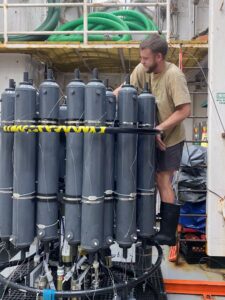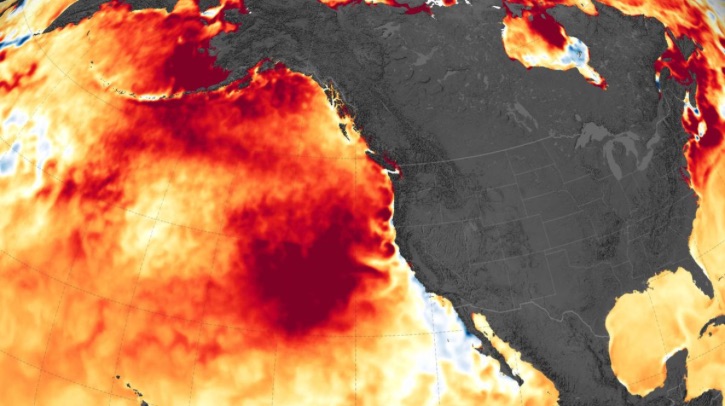The Institute of Arctic and Alpine Research (INSTAAR) at the University of Colorado Boulder has developed a new model for predicting marine heat waves and extreme ocean acidity. The model is adept at forecasting these events up to a year in advance, with varying degrees of certainty based on the location.
INSTAAR PhD student Samuel Mogen, INSTAAR director Nicole Lovenduski and collaborators released a new paper in Nature Geoscience detailing the technique. Despite publishing the paper in November 2024, the researchers actually put the finishing touches on their model a year ago. Back in November of 2023, they produced a forecast for the upcoming year that foretold widespread marine heat waves and ocean acidity.

Mogen said that, at first glance, the heat wave predictions seem to have played out. However, he commented that it will take a while longer to crunch incoming data on acidity. As new information flows in, the researchers will dive back in and validate the model further. In the end, they hope to give decision-makers the best tools possible to predict ocean extremes and mitigate their impacts.
Combining ocean acidification and marine heat waves
Though Mogen and his collaborators are not the first to develop a predictive model for marine heat waves, they are reportedly the first to forecast ocean acidification. They highlighted that, in the past, this research has been stymied by a lack of data – acidity is much harder to measure than temperature. While satellites can accurately measure sea surface temperature from above, acidity levels can only be measured by collecting physical water samples.
Mogen worked on water samples from a CTD-rosette during the US Go-Ship cruise A16N (leg 1) in March 2023 in the equatorial Atlantic. The cruise is part of a decadal survey of the oceans to better understand long-term changes to global ocean dynamics and biogeochemistry (including acidification).
However, in recent years, the scientists have been hard at work entering measurements from research cruises into large Earth system models like the one Mogen used. Much of this research has been contributed by Mogen’s collaborators at the National Center for Atmospheric Research in Boulder.
“We’re getting to the point where we can use them to try and understand the evolution of carbon in the ocean in the short-term future,” Mogen said.
Real-world applications
He also stressed that carbon is key for understanding ocean acidity, especially in the 21st century. As global emissions increase, more and more carbon dioxide leaches into seawater from the atmosphere, making it more acidic. Mogen’s model predicts, for the first time, how large-scale climate patterns might impact this effect.
In one example, the researchers found that El Niño – the recurring warming event in the central and eastern tropical Pacific Ocean – seems to lead to widespread ocean acidity. This effect is especially pronounced in the eastern Pacific, off the coast of the Americas.
Mogen and his collaborators used a mineral called aragonite as a proxy for ocean acidification. As acidity goes up, aragonite concentrations go down. This change has a direct effect on marine organisms. Mollusks, like clams and snails, and corals rely on aragonite to form shells and exoskeletons. Without it, they are left unprotected.
“It can impact how you grow a shell, how quickly your shell dissolves and just your overall survival,” Mogen explained.
This is just one of the myriad ways that ocean acidity affects marine life. Many are still being discovered. As acute ocean acidification events worsen, Mogen hopes that his research will pave the way to better forecasting and more sustainable management of marine ecosystems.
“If you can predict these events in advance, you might be able to inform a manager of a regional fishery and they can alter their practices,” Mogen explained. “Maybe you change how you’re harvesting fish to allow the ecosystem to make it through an extreme event.”
In related news, INSTAAR recently studied 25-million-year-old ocean sediment in Greenland’s ice sheet to understand how it has changed through the planet’s various warming and cooling cycles. Click here to read the full story.



